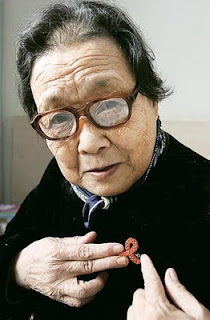
某飲食界議員提議最低工資應設在20元下, 換句話說, 每天工作十小時, 每星期工作六天, 月薪是4800元. 如果"不幸地"每星期只能開工5天的話, 月薪大概是4000元. 以平均一個上有老下有小的五口子家庭來說, 扣除租金伙食交通等開支後,想一家大細假期出外吃麥當勞也有困難, 更枉論說有多餘錢作儲蓄. 假設其中一人失業或生病的話, 家中手停口停, 突發開支往往要從親戚裡頭借, 生活根本沒有保障可言. 再說, 當法定外傭最低工資為3580元而且包食住時, 這項建議無疑對本地低收入人士是slap in the face.
查一查Wiki, 得知這位張議員為了業界權益可謂聲嘶力竭有持無恐, 曾批評李卓人議員不斷提出增加勞工權益,是貪得無厭, 擔心香港會邁向福利社會. 這位議員所說的福利社會大概是指西歐國家奉行的福利制度. 在高稅制下, 一般西歐國家的人民都不用擔心退休後的醫療與福利開支, 在職人士一般工時都比其他國家短而且生活也比較愜意. 當久而久之一切都變得理所當然的時候, 經濟稍有甚麼差遲, 這些assumed liabilities都會變成對政府的巨大付擔, 出現如希臘般的財政危機, 而改變往往會遇到強烈阻撓. 但於香港來說, 這種擔心未免是杞人憂天了吧? 首先, 香港沒有如歐美的social security 制度, 一般打工仔都是靠自己的積蓄和兒女供養去養老, 香港極其量只有生果金這種象徵式的敬老資助. 長者們如沒有儲蓄而仔女又唔生性的話可以想像到會落得晚境淒涼的情況. 而據張議員說, 若然市民掙不到基本生活,應由福利政策支援,不應由僱主補貼。由這思路出發, 公帑當然是從納稅人那裡來, 但若果增加利得稅去滿足市民的基本生活要求, 這又不利營商環境, 不知張議員如何衡量?
當普遍食肆的工資時薪都設在20元以上時, 這個建議根本是敷衍社會對縮減貧富懸殊的關注和共識. 資方普遍反對設立最低工資的理由是最低工資會使失業率增高, 令到很多小企業倒閉. 的而且確, 設立最低工資會令成本增加, 但可以想像到資方為了保持profit margin會將増加了的成本轉嫁至消費者身上. 於食肆來說, 可能每道菜加兩三元, 已經可以回本. 溫總理也提到要香港解決深層矛盾, 定立可以使工人有尊嚴地生活的工資是令香港健康發展的重要一步.




